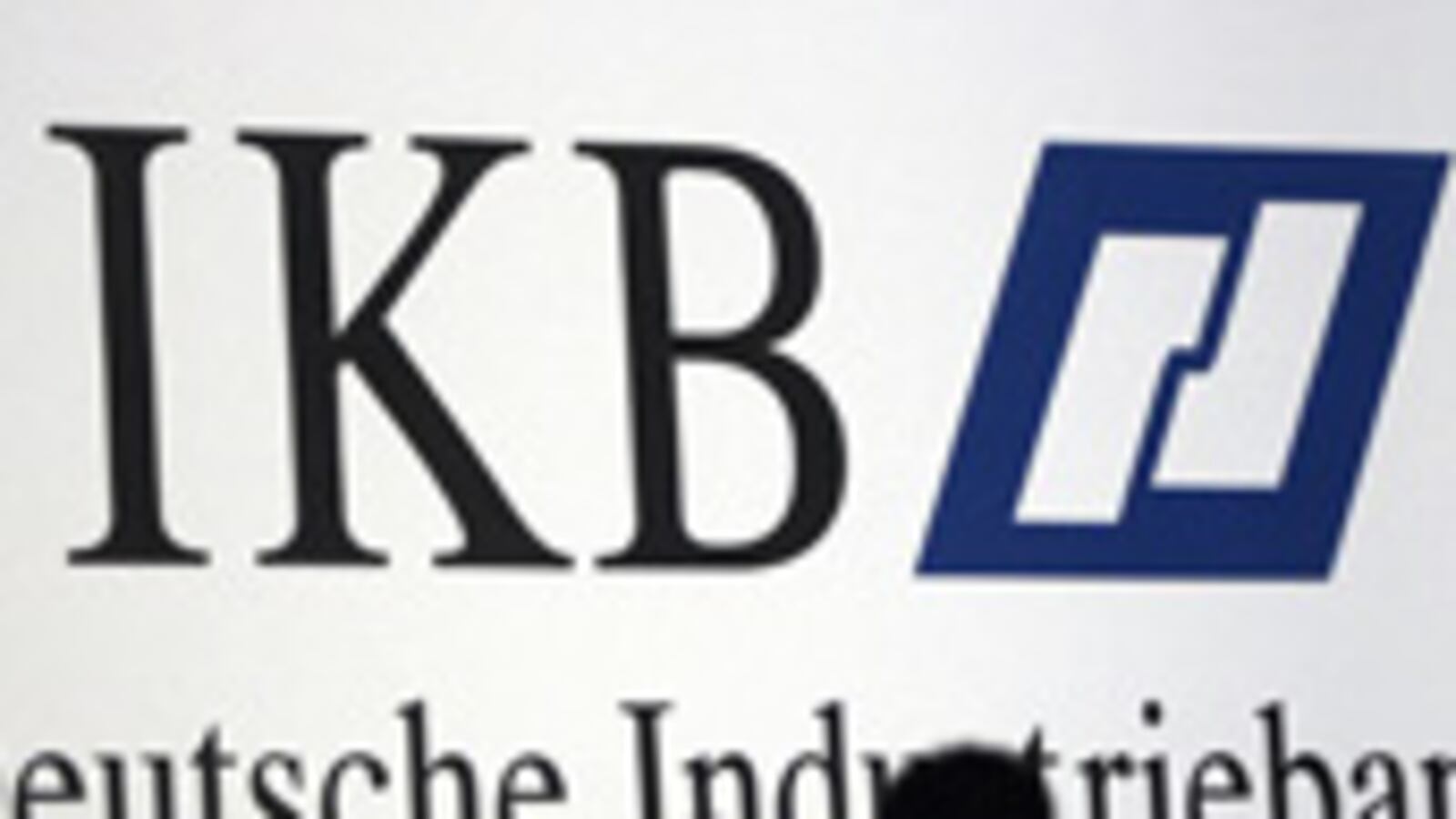
The SEC may have shot itself in the foot when it made a failed German bank a key part of its fraud case against Goldman Sachs.
Yesterday, I reported that IKB Deutsche Industriebank was not the sucker at the table that the SEC depicts in its lawsuit against Goldman. Indeed, its executives were wily and wealthy financiers who employed financial engineering shenanigans to escape the watchful of eye of regulators, shareholders, and auditors.
Now a document exclusively obtained by the Daily Beast demonstrates (view them here) that just a few months before it invested in the derivatives at the center of the SEC's case, the German bank was touting its prowess as a sophisticated investor in those derivatives.
"They weren't consumers, as you or I often think of that term. They were traders."
In other words, IKB were not just sophisticated financial professionals. They were—or claimed to be—sophisticated and experienced when it came to exactly the kind of junky CDOs, dubbed Abacus, they bought from Goldman Sachs.
"Securitisation and CDO investments are an integral part of IKB AG's business model," the document—a marketing brochure for one of IKB's off-balance sheet conduits—claims.
The brochure describes a man named Dr. Thomas Wolwer as the "Senior Portfolio Manager," who has the "responsibility for investing in CDOs both cash and synthetic." His qualifications include working for Dresdner Kleinwort, where he structured and sold various cash and synthetic CDOs. In short, this guy was as experienced in these black financial arts as you can get.
• John Carney: Goldman’s Dirty Customers • Charlie Gasparino: Why Goldman Will Settle The sophistication of IKB will be an important issue in the Goldman case. In general, the securities laws of the United States assume that sophisticated investors can fend for themselves. That's exactly why hedge funds—which only accept money from so-called "accredited investors"—are largely free from regulation. The focus of our securities laws is the protection of ordinary investors and market integrity.
Wharton legal studies professor David Zaring describes the sophistication of the alleged victims in this case as "a fundamental problem for the SEC."
• A Primer on the Goldman Scandal "SEC often describes its mission as one of consumer protection. But the consumers in this case didn't need to be protected. They weren't even consumers, as you or I often think of that term. They were traders," Zaring wrote Thursday on The Conglomerate blog.
In particular, whether or not Goldman Sachs would have had a duty to disclose to the German bank the details of the process under which the Abacus derivatives were created –bundles of putrid subprime mortgages hand-chosen by billionaire hedge fund manager John Paulson, who wanted to bet against them -- may turn on whether IKB had the wherewithal to understand the products absent such disclosure. The 2007 marketing brochure leaves little room for doubt that IKB billed itself to others as having more than enough sophistication.
Perhaps most damaging to the SEC's position: IKB claimed it carefully looked at the CDO pools in which it invested. "CDO pools are examined with a drill down to underlying assets and stress testing of the underlying asset pools," IKB bragged.
"IKB CAM has developed a leading position in the structured finance market through its innovative application of rigorous selection methodologies to the CDO market," the brochure claims in another place.
If they really were performing this kind of investigation, the lack of disclosure from Goldman about Paulson's role should not matter. They would have been fully aware of the contents of the Abacus portfolio, and the motives of those who assembled it would be beside the point.
It is possible, or even probable, that IKB was overstating its level of sophistication—it lost hundreds of millions in the transaction, money that was ultimately covered, most likely, by some byzantine combination of the French bank Calyon and German taxpayers—and the depth of investigation it undertook when making CDO investments. If so, the SEC may still find its case fatally undermined. Because that would indicate that IKB's executives cannot be trusted. No lawyer wants to see a jury wondering whether his star witness was lying back then or lying now.
But that is precisely the dilemma the SEC is faced with. Either the German bank executives were sophisticated and knew what they were investing in when they bought derivatives from Goldman, or they were lying about their sophistication when they bought them.
John Carney is a financial writer and former editor of DealBreaker.com and Clusterstock.com.





